Saving Drypetes porteri through the Global Trees Campaign
-
Country
India -
Region
Asia -
Topic
Tree Conservation -
Type
Blog -
Source
BGCI
Saving Drypetes porteri through the Global Trees Campaign
Drypetes porteri is an endangered tree found only in the remote, rocky, Tropical Dry Evergreen Forests of Tamil Nadu, south India.
Habitat destruction, animal grazing, and the harvesting of its edible fruit and wood by locals are just some of the threats which have resulted in the species population declining across its range. With conservation of D. porteri as their goal, Auroville Botanical Gardens launched a 3-year project in Tamil Nadu, with 2021 representing the final year of the project cycle.
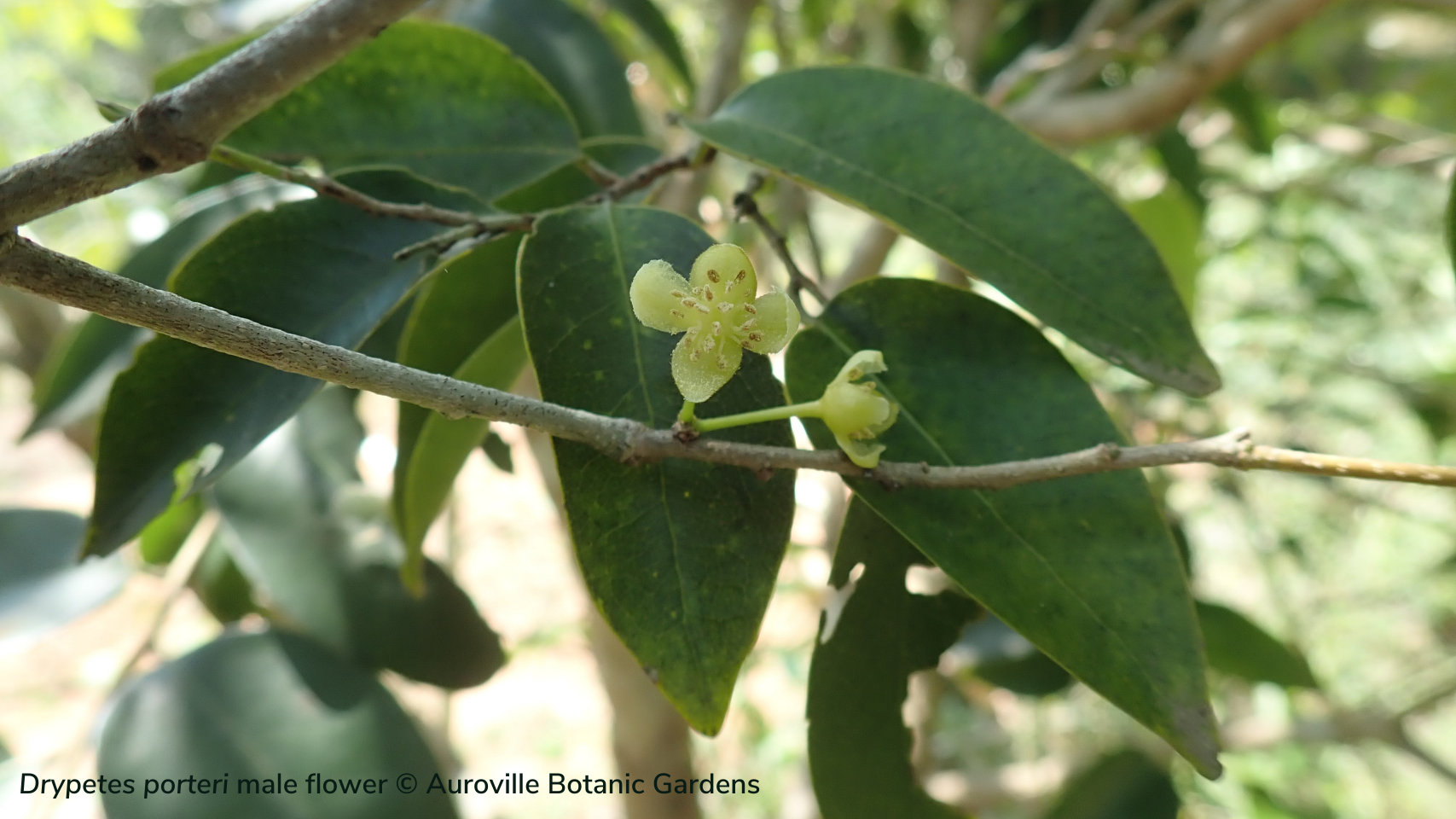
D. porteri male flower
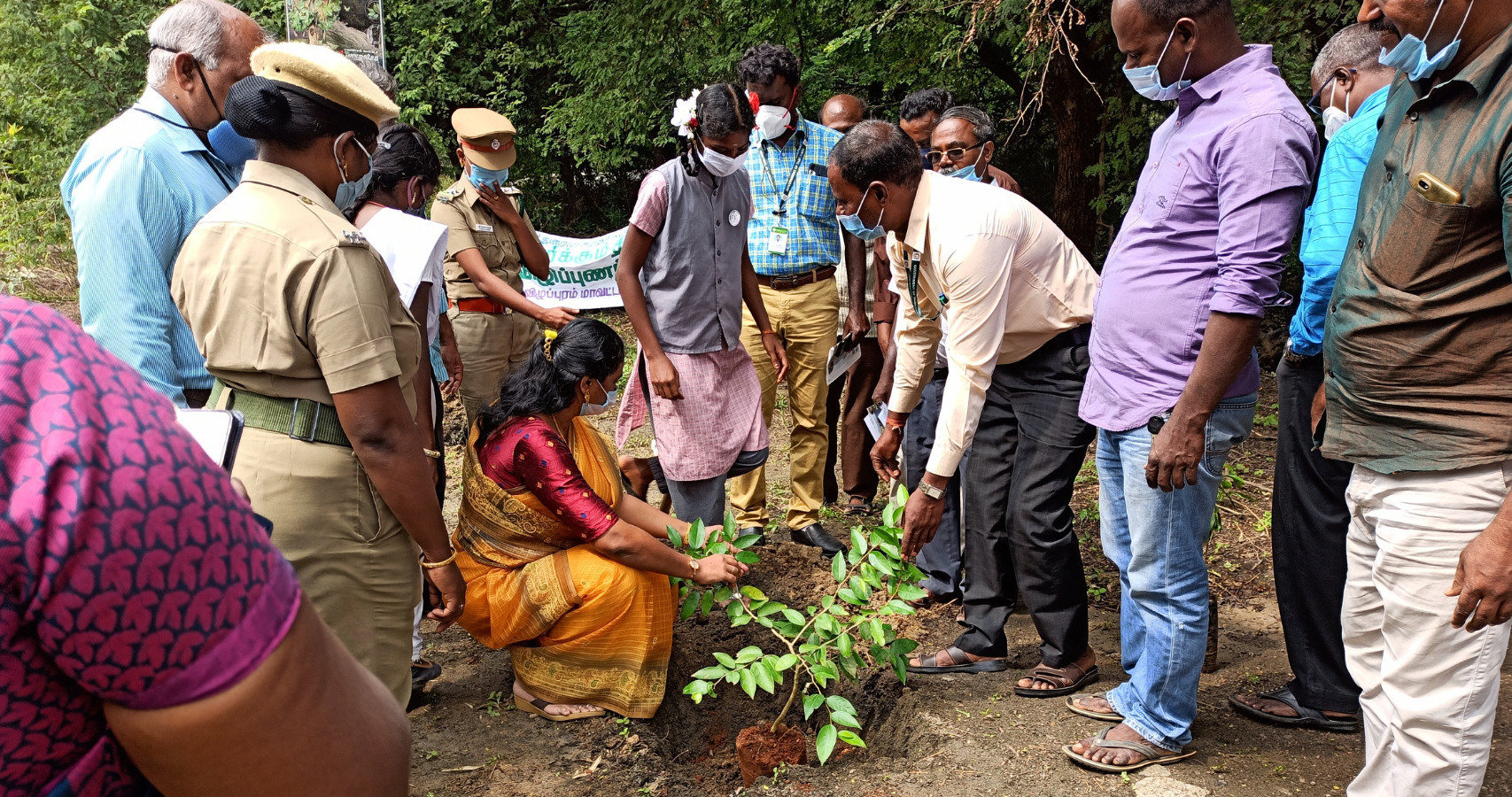
Forest Range Office in Gingee area
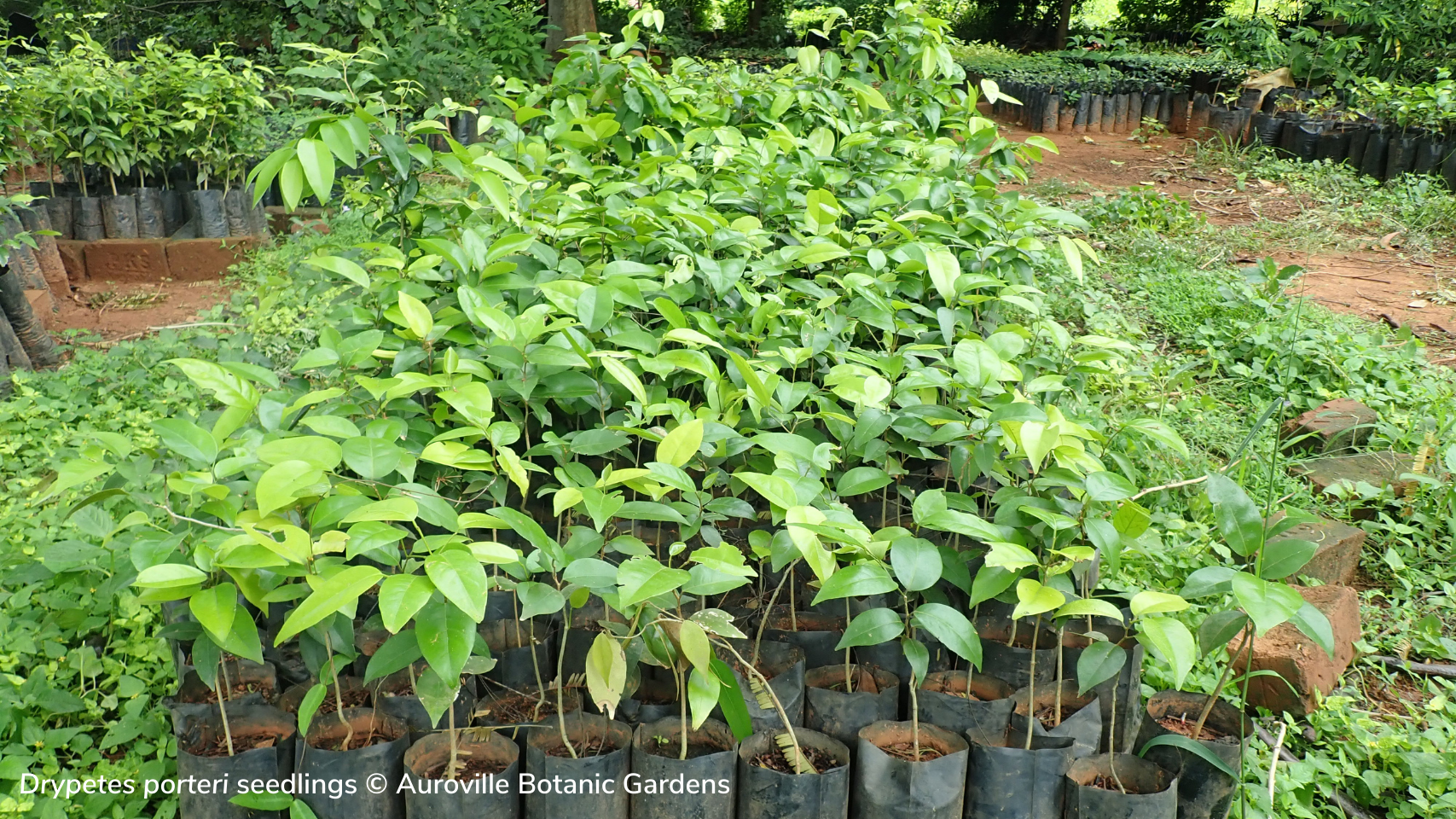
D. porteri seedlings
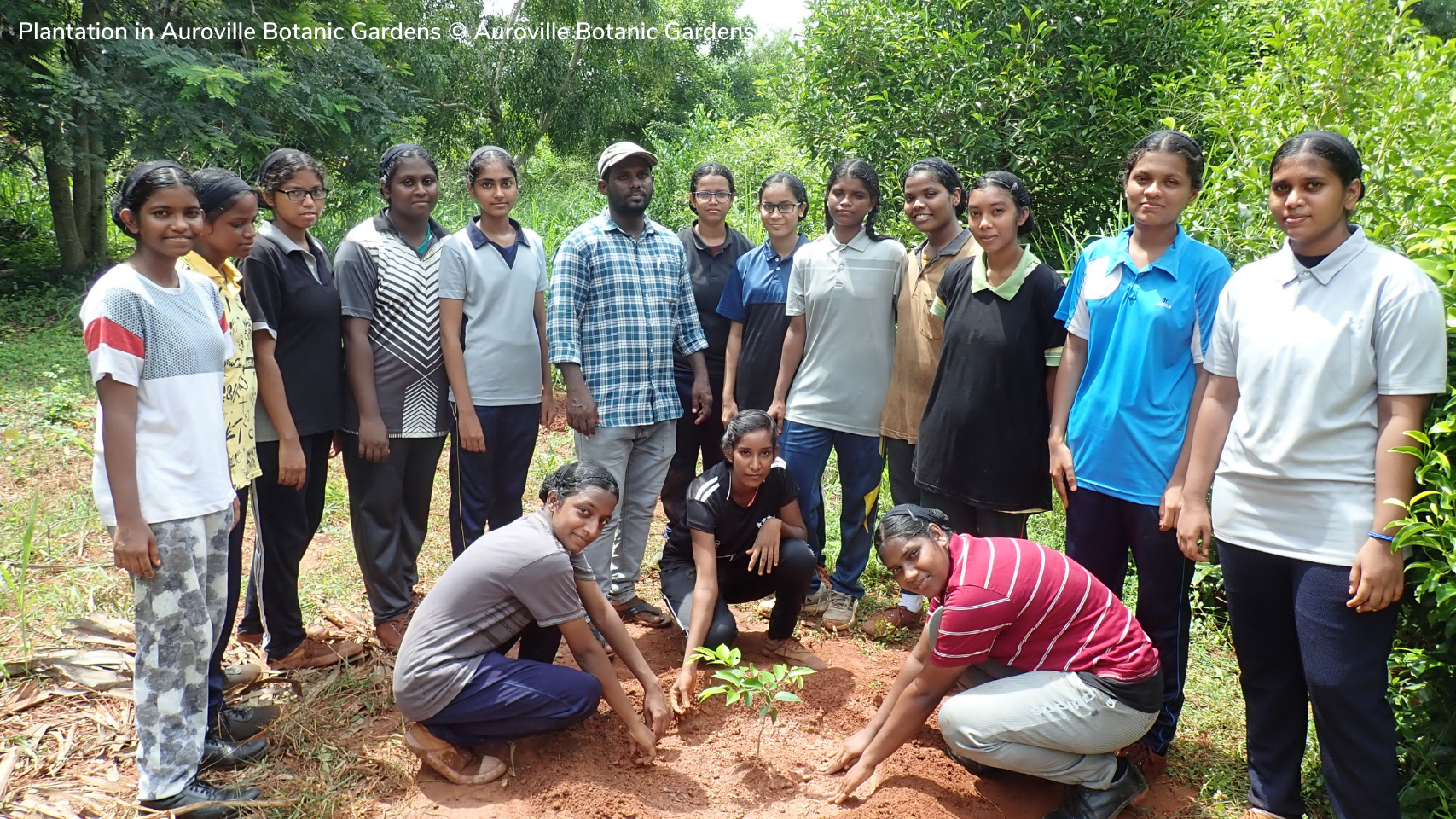
Plantation in Auroville BG
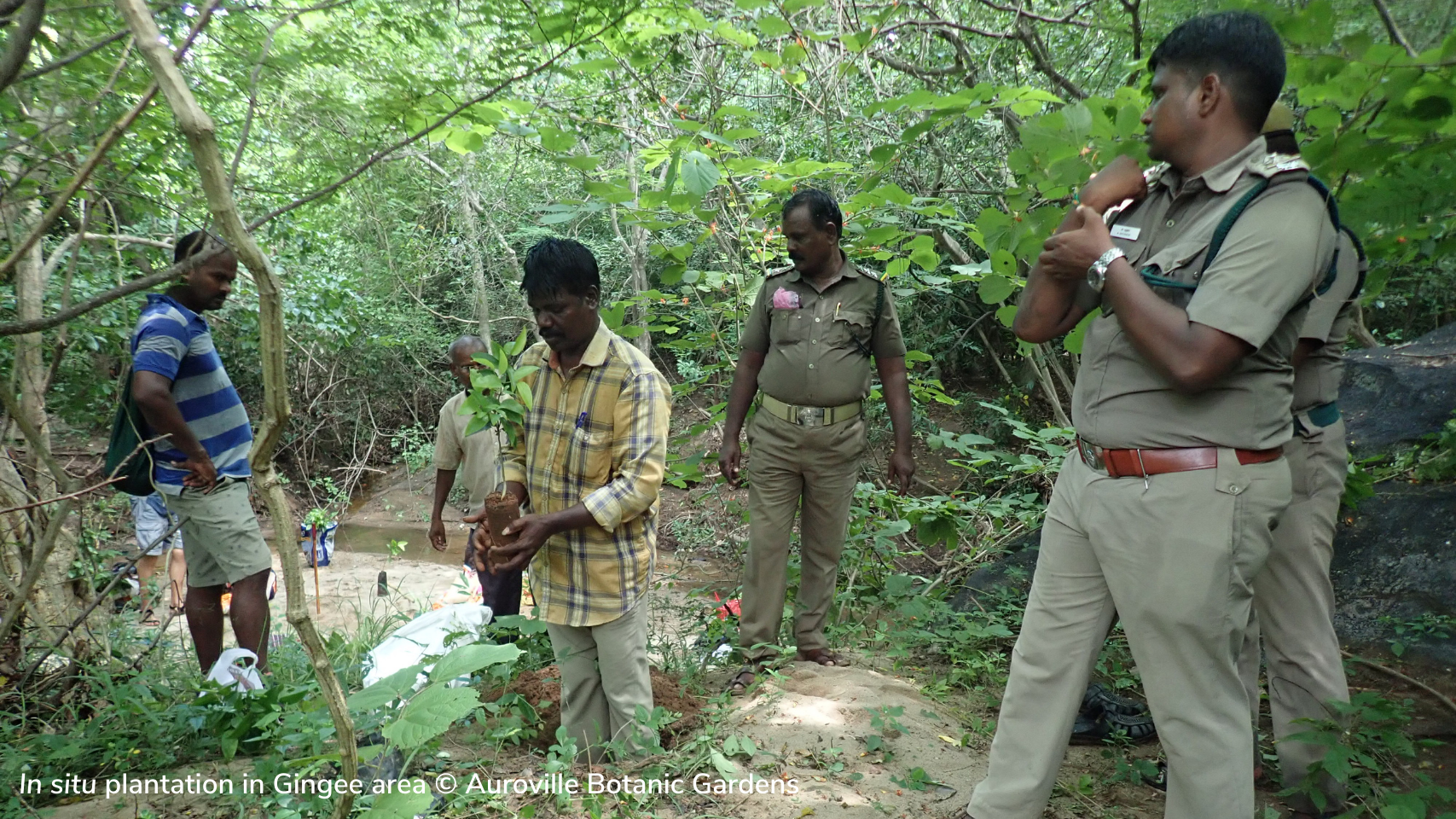
In situ plantation in Gingee area
Paul Blanchflower of Auroville Botanical Gardens on the impact of the project;
“The increased awareness generated by the actions of this project have raised the profile of the forest area within the forest department. They have now begun the process of upgrading the status of the area from reserve forest to sanctuary. This, coupled with the raised awareness in the local villages for the rarity of this species, will hopefully lead to a more secure future for the trees.”
Prior to the project, less than 250 mature individuals of D. porteri were recorded in the wild. However, with extensive surveys carried out across the Pakkamalai Reserve Forest and Megamalai Wildlife Sanctuary, that number has increased to approximately 5,000 mature individuals.
Based on germination and propagation trials at Auroville Botanical Gardens, about 4,500 seedlings of D. porteri were established for use in integrated in situ and ex situ conservation programmes. One population reinforcement planting carried out in the Pakkamalai Reserve Forest represented a ground-breaking new relationship with the Tamil Nadu Forest Department, opening the door to further collaboration in the future.
“In 2021 we had two major successes, the first was getting the in situ plantation work started with the Forest department. Although the numbers were small, it was a wonderful step forward in developing the collaboration with respect to the conservation of this species. The other was gathering seeds from the trees in the Gingee area. We have been waiting for 3 years for this event, and even though we had fierce competition from the local monkeys, we were able to gather enough seeds for our nursery targets!”
To help raise awareness of the species in the local community where harvesting is a threat to its survival, a tree planting and educational programme was delivered by the Auroville Botanical Gardens at the Gingee Forest Range Office. In addition to Forest Range officers, this was attended by the Chief Education Officer of the district, along with teachers and students from different government schools. As part of the education outreach programme, ex situ populations of the species were established in 10 schools around the Pakkamalai Reserve Forest, helping make big strides forward in the conservation and education about D. porteri.
However, despite the many successes, 2020 and 2021 proved challenging years for the project with the unexpected impact of COVID-19. Delivery of the various education programmes was impacted by pandemic-imposed restrictions. Creating ex situ populations at government schools partly compensated for this, supported by the associated education and outreach activities accompanying the plantings.
The pandemic also resulted in restricted access to two of the research sites, Megamalai Wildlife Sanctuary and Kalakad Mundandhurai Tiger Reserve, hampering biodiversity survey efforts. However, additional inventory work in the Pakkamalai Reserve Forest site helped mitigate this, resulting in a better understanding of the species distribution in that location.
Various lessons were learnt along the way. Long term commitment generally is necessary for conservation efforts to become sustainable. Difficulty in locating remote populations, uncertainty in acquiring seeds, the need for seedlings to reach a decent size in nurseries before use in recovery programmes, and the necessary aftercare once plants have been out planted, are all factors that require time to achieve. 3 years is a minimum time frame for this, with 7-10 years ideal, demonstrating the need for future studies and conservation work on D. porteri to be carried out.
“For sure the biggest lesson is that these kinds of projects take time, as there are many variables that come into play. It feels like after 3 years we are finally gathering momentum with the conservation of this species, but there is still much more to investigate and put in place.”
Overall, the list of achievements accomplished by the project spans from raising the profile of D. porteri through to an impressive number of saplings established in the Auroville Botanical Gardens nursery. These are essential to scale up in situ recovery programmes in the next 2-3 years, helping to tackle the population decline of the species.
“Our main aim for 2022 will be to build on the success of last year, and find ways to develop and expand both the in situ and ex situ conservation programs. We will also be looking to investigate the different sub populations and see if they are genetically distinct.”
Learn more about the project in this video from Auroville Botanical Gardens.
Support BGCI
You can support our plant conservation efforts by sponsoring membership for small botanic gardens, contributing to the Global Botanic Garden Fund, and more!
Become a Member
Be part of the largest network of botanic gardens and plant conservation experts in the world by joining BGCI today!